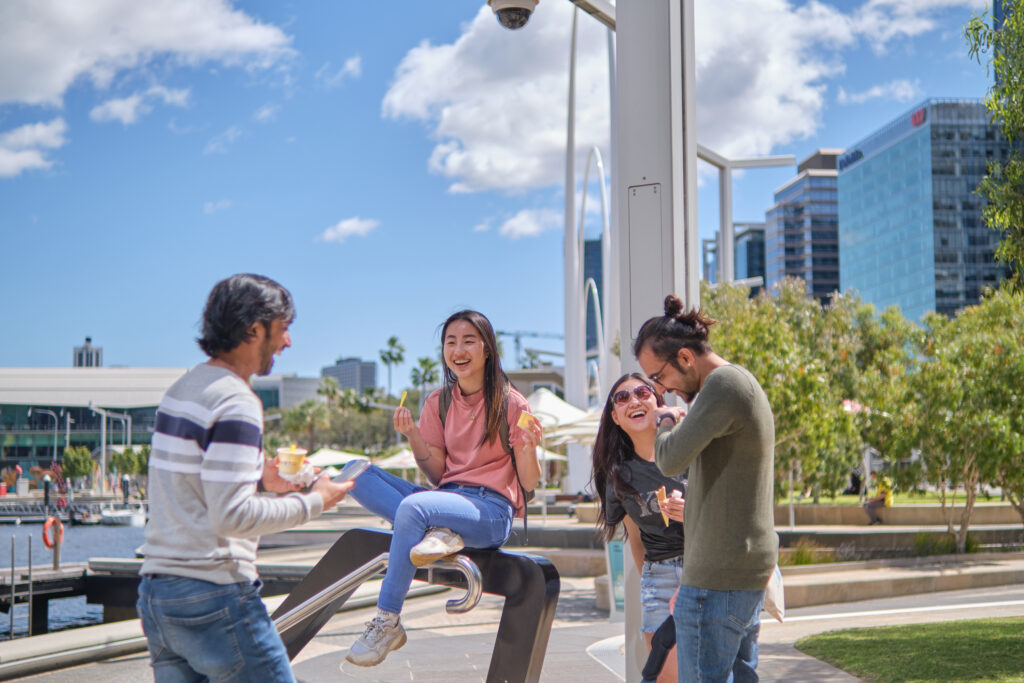Whether you’re preparing to graduate or have already graduated (in which case, congratulations!), it’s time to start planning your next steps. Finding a job in Australia doesn’t have to be stressful – especially once you know the right places to look.
We’ve put together a list of things to keep in mind when searching for a job in Australia, so you can go out there and get the graduate job of your dreams!
Search job listing websites
There are many websites dedicated to helping people find jobs. However, with so many online resources, it can be hard to know where to start.
GradAustralia was founded by three graduates from the University of Adelaide with the aim to give every university student the best start in their career. The website contains a range of job opportunities, from accounting to engineering to law. There is even a section dedicated to internships.
Seek is one of the most popular job-searching sites in Australia. Hundreds of jobs are listed on the site daily, across a full range of industries.
Jora is another employment search site that is easy to navigate and intuitive to use. Pedestrian.TV has a jobs section that focuses on people who want to find employment in creative industries.
And don’t forget about Facebook. There are several Facebook groups dedicated to people looking for roles in specific areas. Simply type ‘Sydney jobs’ or ‘Melbourne jobs’, for example, to locate jobs near you.
Make the most of university career services
Most universities offer career services that include specialised advice, programs, and tools to help you begin your dream career. These university services help you determine what your primary skills are, and what jobs are best suited to those skills. There are usually employability and mentoring programs available, too.
Your university may offer career development workshops; guided support that helps you source work experience placements; personal appointments with career development officers; and advice on job applications, résumé writing, interview techniques, and job search strategies – you just need to ask what’s available!
As well, your education provider most likely has its own jobs board that you can keep an eye on for opportunities.
Network on LinkedIn
LinkedIn is the best place to interact with people from your chosen industry. We all know that networking can lead to opportunities down the line, so make it a priority to start networking as soon as possible.
LinkedIn is also a fantastic resource for job searching. To stay ahead of the game, make sure you keep your LinkedIn profile up to date, continue to build your list of connections, and let people know you are available for work. You can set your profile to ‘open for work’, and even update your headline to let people know what kind of opportunities you’re looking for.
Chat with a career counsellor
It’s always worthwhile talking to a career counsellor to learn about job opportunities in your local area. They can offer support, honest advice, and provide direction on your career path.
Tailor your résumé
You’ve found the perfect job – now it’s time to submit that application. Make sure that you tailor your résumé to each job you apply for. This includes fulfilling all the necessary requirements that the advertisement has asked of you. For example, if the employer requires specific skills, make sure you address each of these in your résumé, and answer all the selection criteria.
If you don’t have everything they are looking for, be proactive. Use an example from your personal or professional life that shows them you have the ability to carry out the role successfully.
Secure a work visa
To work in Australia as an international student, you must have the correct working rights and visa. The 485 Temporary Graduate visa is a post-study work visa that allows you to stay in the country for up to five years after you have completed your studies in Australia.
There is also the option of a skilled graduate visa or a working holiday visa. You can get a comprehensive overview of Australian work visas here.
It’s also essential that you know your rights and responsibilities when it comes to minimum pay and leave entitlements in Australia. The Fair Work Ombudsman is an excellent resource to learn about your entitlements and obligations as an Australian worker.





